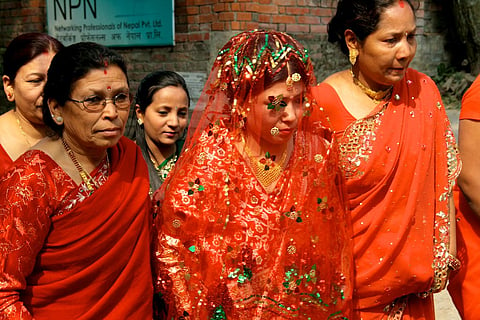(This article is a part of the web-exclusive series from our latest issue 'The Marriage Issue'. More from the print quarterly here.)
Legal and social activism in Nepal has pushed the idea of a more inclusive society, one where there is respect for all minorities, including the largest minority – women. What is at stake is best expressed in the words of Jyotsna Maskay, chairperson of Loom Nepal – an organisation that works to strengthen feminist youth activism in Nepal – who says, "Our freedom cannot be compromised based on assumptions, and expectations. We want freedom to contribute to a just nation; we want freedom from stereotypes, and forced choices. My bodily autonomy is a way to reclaim my space." Unfortunately, when it comes to gender equality in the country, deeply entrenched patriarchal values have proved to be a major stumbling block. If a society is judged by the way it treats its women, especially through the institution of marriage and its associated cultural norms, Nepal still cuts a sorry figure. A snapshot of this inequality is provided by the World Economic Forum's 2015 Global Gender Gap report, where Nepal ranked 110th among 145 countries, behind Bangladesh, Sri Lanka and India.
Nepal's society has seen an unprecedented churn with respect to gender roles, relationships and lifestyles in the past decade, mostly in response to the migration of people and the rise of a modern, consumerist society, fuelled in part by the remittance economy. Economically empowered women, who have also been exposed to newer, more egalitarian social values through increased media consumption, now have desires that challenge the status quo of regressive cultural norms. This is especially so for urban, upper and middle-class women. While stereotypes about 'good' traditional women and 'bad' modern women are still stymieing the process of real change, the upshot is the many small battles fought on a daily basis by Nepali women, usually within homes. These everyday crusaders, many from privileged backgrounds, have met varying degrees of success in obtaining more autonomy with regards to their own person.

